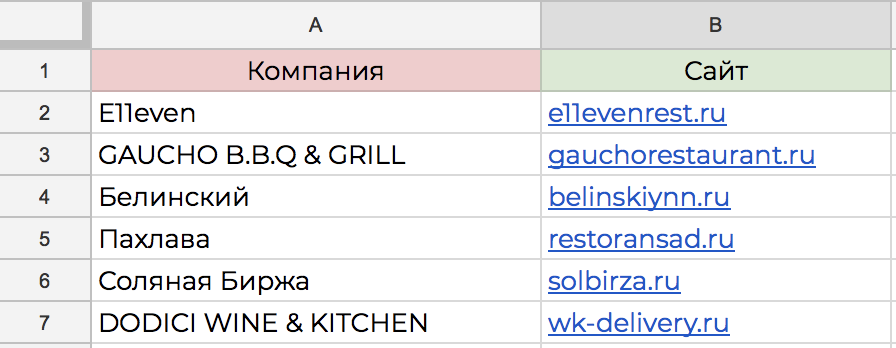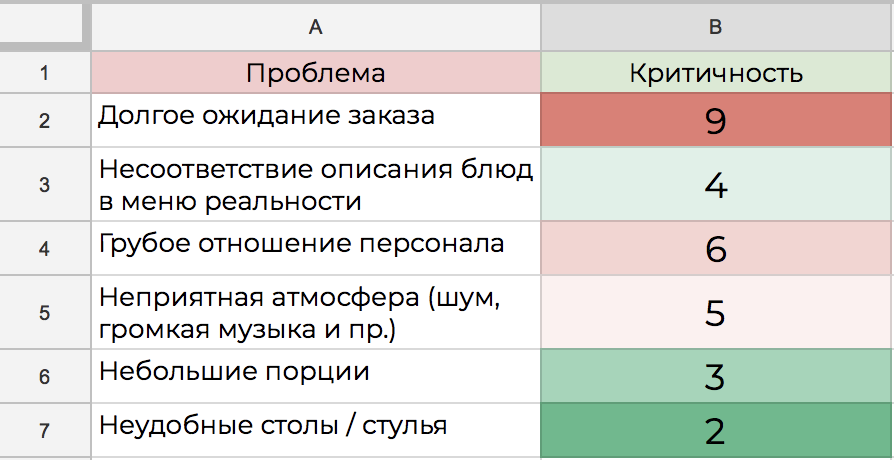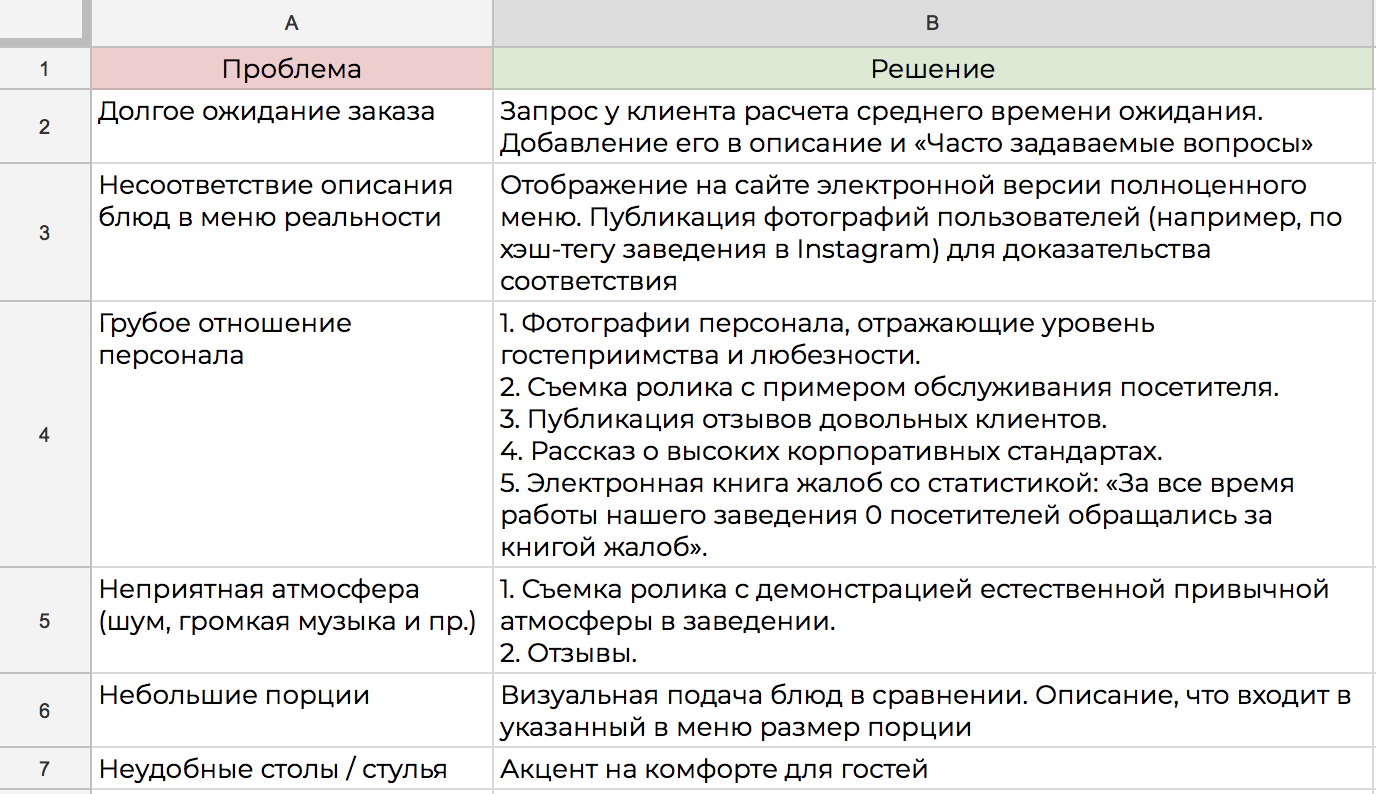Problem-oriented approach to projects in Internet marketing
The article will be useful primarily for web-studios and digital-agencies that are seeking to improve their competence in the field of client projects and want to learn to dive step by step into virtually any niche *
* In addition to new areas where the market has not yet formed

Prehistory
How does the typical work on a new project begin, which falls into the production or advertising department after signing the contract?
- The manager accepts the project, studies the brief, gets acquainted with the client.
- The assignment of tasks begins.
- The planning meeting briefly describes the new project - literally a couple of words.
- All diverge and proceed directly to the work in the fields.
At best, a study of examples from other similar sites is added to this list. Sometimes even completely different subjects.
Why is this approach incorrect?
Because in this way no one from the team fully understands what is required of him, and what are the “pitfalls” in this area of business. All work is built on the client’s “wishes” and some fleeting ideas of the performers. These tactical jerks and attempts to do something "blindly" rarely end successfully. The result is a product that does not meet market expectations. They lose everything: the client, contractors, clients of the client.
What to do to become your man "in the subject"?
When the project is worth it, and you are serious, I want to know everything about it. Familiar to this feeling? Some try to dive so deeply that they turn from internet marketers into builders, restaurateurs and others.
But seriously, you need to face it. Suppose that this huge project is for a year or two, and you know for sure that you will be friends with the customer for a long time and fruitfully. Is it possible for such a period to become an expert in their field? Theoretically, yes. Practically - probably not. It is unlikely that you will be ready to re-read the mountains of literature, go to all sorts of seminars, get to know the right people, and feel the burden of this business that you most likely will never connect your life with.
Therefore, the question posed in the subtitle, despite its popularity, is fundamentally wrong. Need to think about something else.
How to quickly master a niche without overloading yourself with unnecessary data?
The essence of the method is extremely simple. It is based on feedback that can be collected during the analysis of reviews.
Collection of competitor sites
Each of us at least once in his life faced with competitive analysis. Someone telephoned his colleagues, hiding behind a made-up legend, to find out the "chips" they used in the presale. And someone just did it on request of the client.
Now the task is easier - you just need to identify the companies that are in the niche of this customer. It is useful to add to the list even competitors from other regions operating in different price segments, with different positioning. You can benefit from any feedback!
Obvious search methods:
- Ask the customer himself (because you have a corresponding question in the brief, which you have already asked, right?).
- Google.
- Ratings
- 2GIS and any regional guides / maps.
At the exit you should have a table listing all the companies found:

Keep an open tab close at hand - it will come in handy soon.
Reviewing reviews and identifying issues
Go to monitoring reviews. We collect all feedback from customers of these institutions.
Where to looking for:
- Catalogs / Ratings / Otzoviki (zoon.ru, flamp.ru, yell.ru, etc.).
- Reference books and maps.
- Soc. network.
Based on the reviews found, we compile a list of the typical “pain” of customers - which they most often complain about:

It is necessary to pay attention to all, even the seemingly insignificant, customer complaints. This list reflects market expectations / requirements.
Searching of decisions
When the problem is indicated, it is time to find solutions.
And there are 2 vectors here:
- The client’s business itself is with its product, processes and people.
- Internet Marketing. First of all - the site.
If you can (and must) influence the second vector of development, then a business is a completely different path, where contractors are usually not exactly not allowed, but even hide the real state of affairs. You have the right to interview a client, ask leading questions and clarify whether a decision is planned in the near future, but it is pointless to try to influence it. If the company has problems, for example, with the selection of personnel, then do not even think about becoming freelance recruiters for them. Prompt friends who are in search of work - this is the norm. But to interfere in the solution of the global task of personnel - no.
Therefore, you, as specialists in the field of Internet marketing, can only focus on the strengths of the client business and [at a minimum] not to single out the weak sides.
When we talk about bringing a new audience to the site, for them the client’s company is an uncharted ocean. If they do not prove that there is a very steep level of service, then before the 1st experience of interacting with the business, they will rather believe that everything is bad. Therefore, the essence of our work is the demonstration of advantages, the search for solutions to prove:

What to do with all this?
Now you have a document in your hands that gives you an understanding:
- What lives this niche.
- What are the problems.
- Due to what you can beat the competition on the Internet.
- Priority - which moments most worry potential customers.
- How much the company meets their expectations.
Sometimes, among the big detailed reviews, you can find extremely useful information - people (without knowing it) begin to paint the ordering process, tell how they make a decision, what they pay attention to, how different organizations compare. Such value is sometimes impossible to find even in books and in seminars.
Total:
- Multiple time savings.
- Demonstration of their qualifications and interest in the project (which translates into customer loyalty).
- Facilitate further work.
